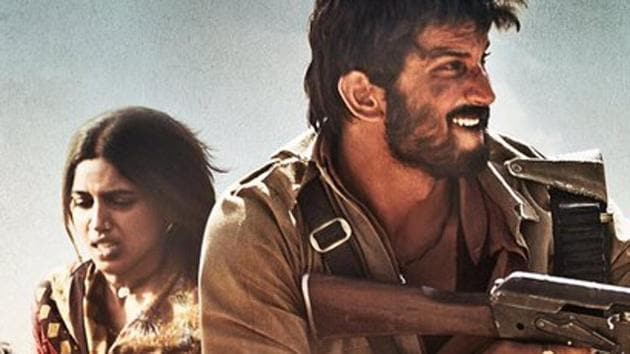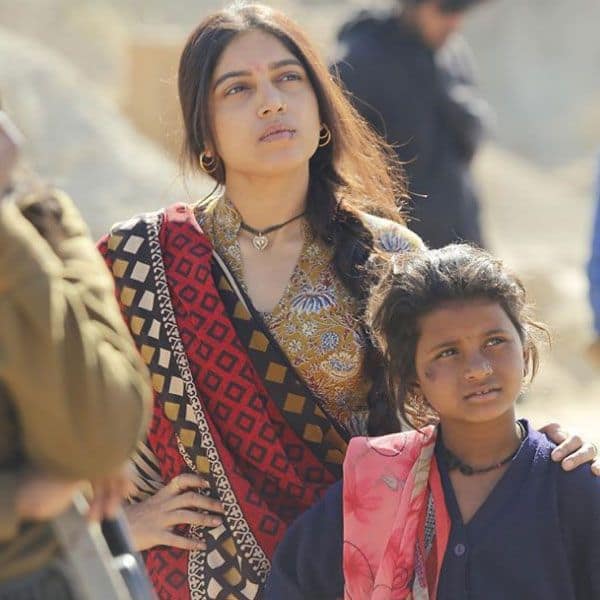

Everyone seems to have their own idea of redemption. From the first frame that shows a dead snake crawling with flies to the very last shot, it solidifies this idea.īut not everyone wants to survive either. Patriarchy and caste deep infliction in the dog-eat-dog world that the film is set in. We meet the fictional form of the real-life dacoit ‘Phoolon Devi’ where we get to see another side of the spectrum. Even when the entire arc shouts of clichés, her character was essential to get to the title of the film- ‘a golden bird’. Pednekar plays a Thakur woman who is trying to save the life of a girl that belongs to a lower-class. Also Check Out: A Fistful of Dollars: The Arrival of Sphagetti Western Sonchiriya examines patriarchy and masculinity not just from the eyes of women, but also from the perspective of a man who is considered unmasculine for choosing to be sensitive rather than violent. The drama seems little interested in the murder or bloodshed and more on the conscience behind any of their actions. Other than these two key characters, we get to see Vakil Singh (Ranvir Shorey) as Maan Singh’s loyal sergeant, Indumati Tomar (Bhumi Pendnekar) as a lady caught up in a similar turmoil and Inspector Virender Singh Gujjar (Ashutosh Rana) as a vengeful police officer. So if the foundation itself is not just or fair in any way, do they really follow a certain faith? He asks Maan Singh, which in actuality is him questioning himself. The gang belonged to Thakur caste in the hierarchy who weren’t particularly kind to the ones that were lower in the paradigm. “Police unka dharam nibhayenge, Baghi baghi ka”, Maan Singh utters.įor a young dacoit who is engulfed in self-doubt and who is seeking for a better reason to justify his living this sounds quite amusing. So when he plans a dacoity despite the police warrants against them, Lakhna’s resistance seems quite surprising. Manoj Bajpayee who plays the character was more of a messiah to him. Lakhna Singh believed in the principles that the older dacoit Maan Singh pursued most of his life. The film then sets forth a true struggle between life and death as the characters in the film start falling apart. The politics from the outer world didn’t matter at the time but it was evident that stronger forces were there to stop them. Even if they escaped from a certain situation, they couldn’t escape from their own misery. Rather than glory, being a dacoit was slowly turning into shame. Related to Sonchiriya: Duck You Sucker (1971) – Leone’s Final Western The times had brought them to a point where their terror was almost diminishing and there seemed no glory in being heroic anymore. It seemed vile to let their masculinityearn them the respect that they once had. As times changed, these outlaws who were living with the ideologies of the past started facing the heat up front. The time where people started being more aware of their rights being a dacoit become exceedingly difficult.

Sonchiriya is based in the 1970s when Indira Gandhi had declared an internal emergency. As they search for their own identity, the film stumbles upon death and religion – Both of which, are crucial and relatable in the contemporary world we all inhabit. Related to Sonchiriya: 2018: Revising The Revisionist Western – The Sister Brothers, The Ballad of Buster Scruggs and DamselĪs a result, we get an existential drama surrounding a bunch of outlaws who are on the edge as they are all trying to fight their way through existence while trying to find a purpose for living. Even if a certain incident affected him deeply to think that way, it paints a broader stroke about dacoit’s internal turmoil. However, the merciless nature of their identity that attracted him earlier has now become a burden. He really liked the control that a baaghi had over someone else’s fear. Lakhna Singh ( Sushant Singh Rajput), who asks the question, wished to become a baaghi for the respect that they used to get. Furthermore, the film sets to achieve much more. So, when a character in Abhishek Chaubey‘s Sonchiriya questions another dacoit about the very nature of why he chose to become a ‘Baghi ’, it pulls our heartstrings. Rarely has a film tried to get to the bottom of this cliché. We have only come to judge them from their appearance and fearsome demeanor. When we picture them we always focus on their fearlessness that comes from a lack of moral sense of what they are doing.

If we are told to think about dacoits, the obvious image comes from the celebrated western films in the 60s and 70s.


 0 kommentar(er)
0 kommentar(er)
